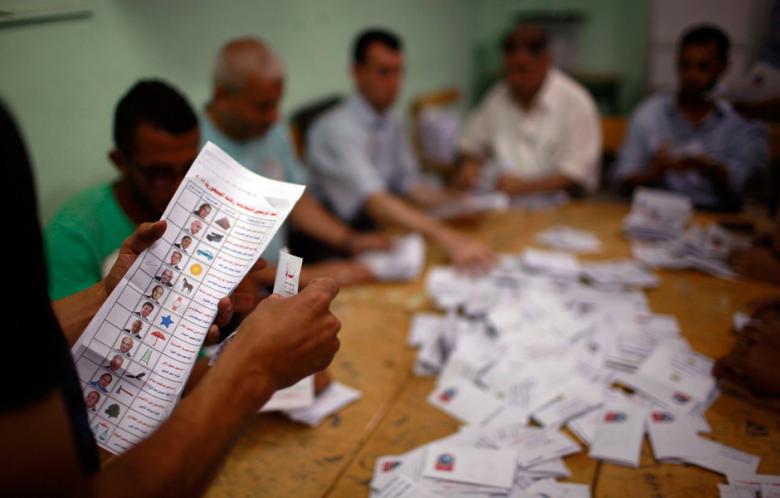
The Egyptian parliament passed a law on Tuesday that will phase out judicial supervision of elections by 2024, and will create the National Electoral Commission (NEC) that will be responsible for supervising elections and referendums.
Parliament Speaker Ali Abdel Aal said at the session on Tuesday that the removal of full judicial supervision puts a stop to the “judge for every voting box” principle.
The law was discussed earlier in June when parliament was divided over Article 34 which states the complete phasing out of judicial supervision by 2024 to offer the NEC some experience.
The NEC law gained a two-thirds majority vote in parliament for independent authority over the electoral process.
Several MPs, however, argued that the constitution stipulates that NEC use a number of judges in order to maintain transparency and integrity.
However, Abdel Aal said that any changes to the law would be unconstitutional and void.
The NEC will be headed by the Court of Cassation. The board includes senior judges affiliated with the Court of Cassation, the Court of Appeals, the State Council, the State Cases Authority, and the Administrative Prosecution Authority.
They will be selected by the Higher Council for Judges and endorsed by the president of the republic, the report says.
The NEC’s decisions can be appealed before administrative courts.
A report by the parliament’s legislative reform committee said that the law is in accordance with articles 208 and 209 of the constitution, which state that “NEC should be created to supervise and monitor the country’s general elections: parliamentary, presidential and municipal and referendums.”
“NEC’s duties will range from reviewing national voter lists on a periodical basis, making sure they are free of any irregularities, to holding polls and announcing results,” said the committee’s report on the law.
The report added that the law also aims to implement Article 210 of the constitution, which stipulates that full judicial supervision of the polls should be phased out completely by 2024.
MP Mostafa Bakry told Egypt Independent on Wednesday that Egyptians hold great conviction towards the judges, and for that reason “Article 34 cannot be stipulated in its current form.”
“Most Egyptians believe that polls will be rigged if they are not held under full judicial observation,” said Bakry, adding that “the application of this article may create doubt over poll results’ reliability.”
Moreover, Article 34 was heavily condemned by members of parliament’s 25-30 opposition bloc.
“The elimination of judicial supervision puts an end to the integrity of elections in Egypt,” they said in a statement.
“It is a process that began in 2000 and led to changing the political landscape in Egypt, and was highly instrumental in fueling two revolutions,” the statement added.
Abdel Aal further explained that Article 34 “will only eliminate a judge for every voting box,” but it will not eliminate general judicial supervision of the polls altogether.
Egypt’s 1971 constitution stated that a judicial body must supervise elections administered by the Interior Ministry. However, the Supreme Court suspended the law in 2000 and imposed full judicial supervision of elections.
The interior ministry had oversight responsibility until the High Election Commission and Presidential Election Commission were established in 2005 to supervise instead.
Later in 2007, a constitutional provision placed the supervisory role under the control of the Higher Election Commission. It was revoked by former President Hosni Mubarak in 2010, and later in 2011, full judicial supervision was revived.
Egypt’s next presidential election will be held in February 2018.




